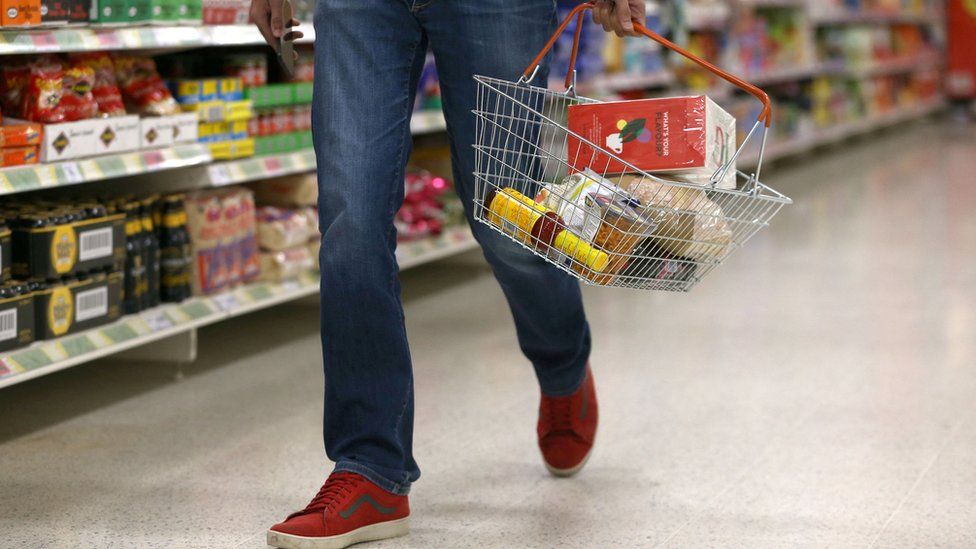The UK’s cost of living surged by 5.4% in the 12 months to December, hitting its highest level since 1992.

Image source, Reuters
The cost of living rose at its fastest pace in nearly 30 years in the year to December, official figures show.
The UK’s Consumer Prices Index measure of inflation rose to 5.4% from 5.1% in November, the Office for National Statistics (ONS), said.
The last time inflation was higher was in March 1992, when it was 7.1%.
The rising price of food and non-alcoholic drinks contributed to December’s increase, as did household costs, especially energy bills.
Costs rose for clothing, footwear and furniture too, as well as for restaurants and hotels.
The rising cost of petrol and second-hand cars also pushed the rate higher.
Paul Johnson, director at the Institute for Fiscal Studies think tank, said people on low incomes would be particularly hard hit by the rises.
“Everyone, particularly those on modest incomes has had a long period of wages not really growing any faster than prices over the last decade so another increase at this point is going to be particularly painful,” he told the BBC.
The rate continues to be well above the Bank of England’s 2% inflation target.
Separate ONS figures issued on Tuesday showed that average pay rises are failing to keep up with the rise in the cost of living.
Regular pay, excluding bonuses and adjusted for inflation, fell 1% in November compared with the same month in the previous year.
Paul Dales of Capital Economics said inflation was now expected to hit 7% by April.
“That would be higher than the peak of 6% that the Bank of England was forecasting when it raised rates in December,” he added.
“And although inflation will fall back thereafter, we think it will stay above 4% for all of this year and won’t drop to the 2% target until April 2023.”
As a result, he said, the Bank of England’s rate-setting Monetary Policy Committee was likely to raise interest rates faster than most people expected, with the next increase to 0.5% expected in February.


The wave of inflation shows no sign of abating just yet.
At 5.4% in December, the annual rate of the Consumer Price Index has never been higher since the Bank of England was given independence – and, actually, since this measure of inflation was created.
It is only because the statisticians have modelled what CPI would have been that we can tell that this is the highest since March 1992. This is well over double and heading for treble the rate of inflation the Bank has as its legal target. Gas, electricity, food and used car prices are all surging.
And the unfortunate news is that it is heading even higher. The Retail Price Index, an inflation measure which is still widely used by government and businesses , is already at an incredible 7.5%. Independent analysts fear the main measure will hit 7% in April when the energy price cap is raised again.
But where above 6% it hits is in the hands of government and the energy companies. The gas that they will charge for has already been bought. The inflation that will push these figures yet higher in the coming months is arriving on tankers of American liquified gas.
The concern is that not only is the predicted peak inflation getting higher, but that it will prove “stickier” than expected, remaining at high levels as the energy price cap is further raised in the autumn and beyond.

Chancellor Rishi Sunak said: “I understand the pressures people are facing with the cost of living, and we will continue to listen to people’s concerns as we have done throughout the pandemic.”
He said the government was providing support worth about £12bn this financial year and next to help families cope.
Shadow Treasury secretary Pat McFadden said: “These figures show that the cost-of-living crisis is only going to get worse in the coming months.
“Working families are already feeling the crunch. But the triple whammy of an imminent rise in the energy price cap, real wages falling and Tory tax rises coming down the tracks are going to make this crisis even worse.”